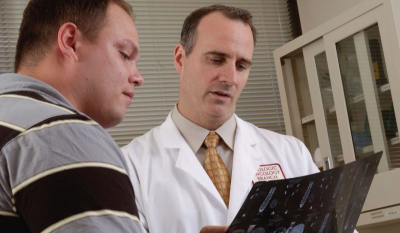What Is Prostate Cancer? Symptoms, Risks, and Answers for Newly Diagnosed Men
Frequently Asked Questions: What Is Prostate Cancer?
1. What is the prostate?
The prostate is a small gland found in men. It’s usually about the size of a walnut. The prostate sits just below the bladder and surrounds the urethra (the tube that carries urine out of the body). Its main job is to make some of the fluid that becomes part of semen.
2. What is prostate cancer?
Prostate cancer is a disease where cells in the prostate grow out of control. It means that some prostate cells have changed and started to multiply more than they should, forming a lump or tumor. Some prostate cancers grow very slowly and might not cause problems for a long time, while others can grow faster or spread. Your doctor will check how aggressive the cancer is and discuss the best way to manage or treat it.
3. How common is prostate cancer?
Prostate cancer is very common among men, especially as they get older. In fact, it is one of the most common cancers for men (second only to skin cancer). About one in eight men will be diagnosed with prostate cancer at some point in their life, so you are not alone. Every year, hundreds of thousands of men are diagnosed, which means many families have gone through what you are experiencing. Knowing that it’s common can sometimes make it a little less scary, because it means doctors have a lot of experience treating it.
4. Why are African American men more at risk of prostate cancer?
African American men have a higher risk of developing prostate cancer, and doctors and researchers are working to understand why. Statistics show that Black men are more likely to get prostate cancer and also more likely to have it at a younger age or in a more aggressive form. The reasons for this aren’t completely clear, but it could be due to a mix of genetics (inherited traits) and social or healthcare factors. What we do know is that about one in six African American men will get prostate cancer in their lifetime (compared to one in eight men overall), and they are more than twice as likely to die from it. Because of this higher risk, many experts recommend that African American men start talking with their doctor about prostate cancer screening (like PSA blood tests) earlier, around their 40s. Early detection can help catch prostate cancer when it’s very treatable.
5. What are the symptoms of prostate cancer?
Early prostate cancer usually doesn’t cause any symptoms at all. That’s why many men don’t know they have it until they get a blood test (PSA test) or doctor’s exam. If prostate cancer does cause symptoms, they often involve changes in urination. For example, you might have trouble starting to urinate, a weak or slow urine stream, or needing to urinate more often (especially at night). Some men might see blood in their urine or semen, or feel pain or stiffness in their lower back, hips, or pelvis. However, these signs aren’t specific to prostate cancer — they can also be caused by other common prostate issues or age-related changes. If you notice any of these symptoms, it’s important to talk with a healthcare provider to find out what’s going on.
6. What causes prostate cancer?
Doctors aren’t exactly sure what causes one man to get prostate cancer and another to not get it. In general, cancer starts when cells grow abnormally, but pinpointing a single cause is hard. We do know there are some risk factors that make prostate cancer more likely: being older (most men with prostate cancer are over 50), having a family history of prostate cancer (like a father or brother who had it), or being African American (as mentioned, Black men have a higher risk). Lifestyle factors like diet might play a role too, but there’s no definite cause that you personally did to bring it on. It’s very important to remember that nothing you did caused your prostate cancer. Cancer can happen to anyone, so you shouldn’t blame yourself.
7. I was just diagnosed with prostate cancer. What should I do next?
First of all, take a deep breath. Getting the news that you have prostate cancer can feel scary and overwhelming, but remember that prostate cancer is often very treatable, and most men with it survive and live full lives. You will want to follow up closely with your doctor – usually a urologist (a prostate specialist) or an oncologist (a cancer doctor) – to learn more about your specific situation. Ask questions about your cancer’s stage (how advanced it is) and grade (how aggressive it looks), and what treatment options might be best for you. It’s perfectly okay to get a second opinion from another doctor to feel confident in your care plan. Consider bringing a spouse, family member, or friend to your appointments for support — they can help you remember information and ask questions. You can also seek out support groups or resources for men with prostate cancer (there are groups especially for African American men too) to talk with others who have been through it. Remember to take care of your overall health — eat well, stay active if you can, and get rest — and lean on your loved ones. The important thing is that you are not alone: your healthcare team is there to guide you, and there are many sources of help and hope for you as you move forward.
8. Can prostate cancer be treated or cured?
Yes. Prostate cancer can almost always be treated, and in many cases it can be cured, especially when it’s caught at an early stage. There are several effective treatments available (such as surgery or radiation) that can eliminate or control the cancer. The good news is that for early prostate cancer that hasn’t spread, the success rates are extremely high — most men with early-stage prostate cancer live many years after treatment, and many are effectively cured. Even if prostate cancer is more advanced, treatments like hormone therapy, radiation, or chemotherapy can often still manage the disease for a long time and help relieve symptoms. Every person’s situation is different, so your doctor will talk with you about the best approach for your case, but having prostate cancer definitely does not mean it can’t be helped.
9. What are the treatment options for prostate cancer?
There are several treatment options for prostate cancer, and the right one for you depends on how aggressive your cancer is, how far it has spread, and your personal preferences. For some men with very early or slow-growing prostate cancer, an approach called active surveillance (or “watchful waiting”) might be recommended. Active surveillance means the doctor will monitor the cancer closely with regular check-ups and tests, and hold off on treatment unless the cancer shows signs of growing. If the cancer needs to be treated, common options include surgery (called a prostatectomy, which means removing the prostate gland) or radiation therapy (using high-energy rays to kill cancer cells). Other treatments include hormone therapy (medications that lower or block the hormones that help prostate cancer grow), which is often used if the cancer has spread beyond the prostate or to help shrink the cancer before other treatments. In some cases, chemotherapy or newer treatments (like immunotherapy) are used, especially for cancer that has spread widely or didn’t respond to other treatments. Each option has its own pros and cons, so it’s important to talk with your doctor about what’s best for your situation. They will help you understand the benefits and side effects of each treatment so you can make an informed decision that you feel comfortable with.
10. Is prostate cancer a death sentence?
No, prostate cancer is not a death sentence. In fact, most men who are diagnosed with prostate cancer do not die from it. Thanks to improvements in early detection and treatment, millions of men who had prostate cancer are alive today and leading active lives. Prostate cancer often grows slowly, and when it’s found early it is very likely to be cured. Even for cases that are not caught early, there are treatments that can often manage the disease for many years. This means that many men with prostate cancer live a long time and die from other causes, not from the cancer. While hearing the word “cancer” is frightening, having prostate cancer means you need to pay attention and get good care — but it definitely doesn’t mean you will automatically die from it. The outlook for most men with prostate cancer is very hopeful, especially with the right treatment and follow-up care.







